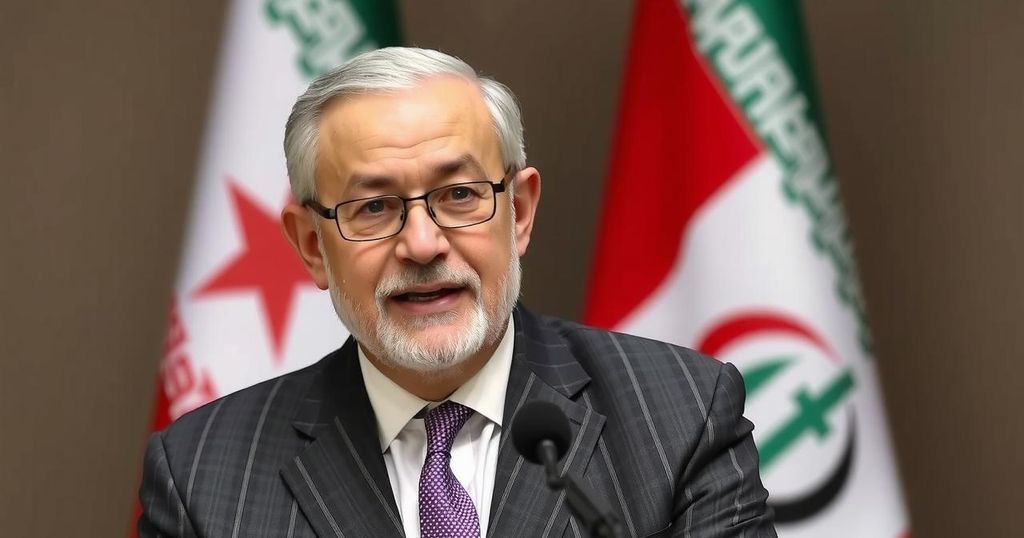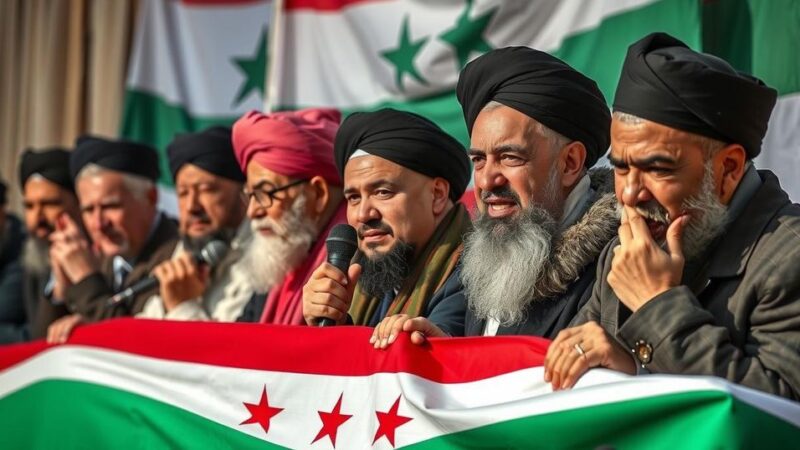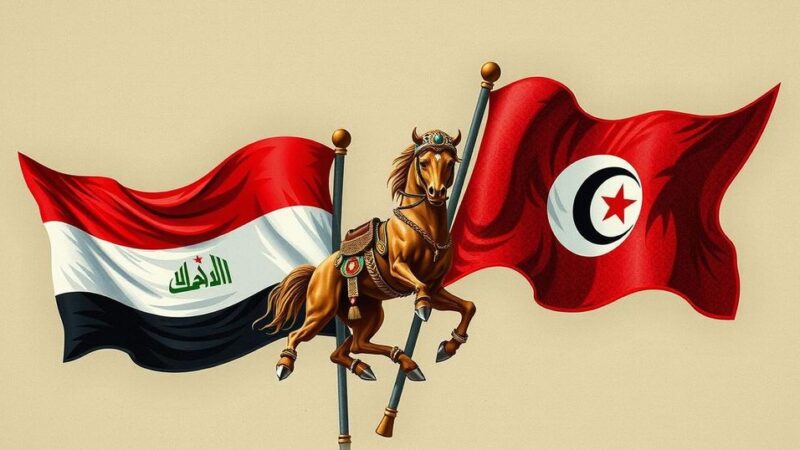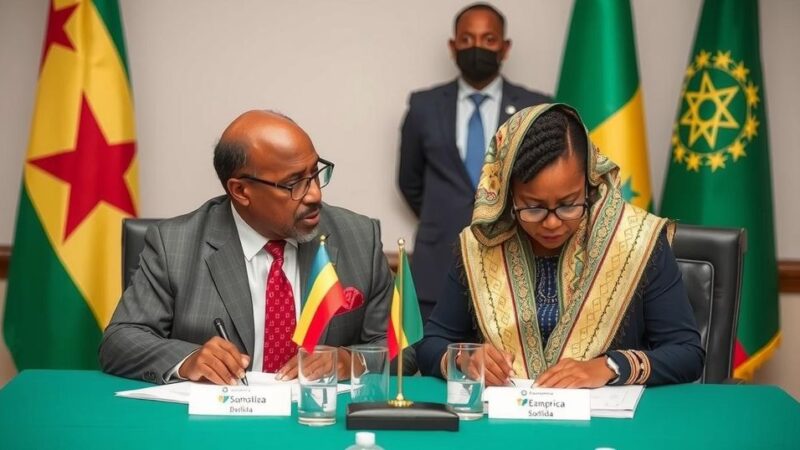Syria’s Foreign Minister, Asaad Hassan al-Shibani, has urged Iran to refrain from spreading chaos in Syria and to respect the sovereignty of the Syrian people. His remarks followed calls from Iran’s Supreme Leader urging Syrian youth to unite against insecurity. Iran’s historical support for Assad complicates the current dynamics as Syrian stability remains frail post-civil war.
Syria’s newly appointed Foreign Minister, Asaad Hassan al-Shibani, has publicly warned Iran against perpetuating chaos within Syria, urging the nation to honor the will and sovereignty of the Syrian people. In his statement on X, he asserted, “Iran must respect the will of the Syrian people and the country’s sovereignty and security. We warn them from spreading chaos in Syria and we hold them accountable for the repercussions of the latest remarks,” without detailing the comments that prompted his warning. This statement follows Iran’s Supreme Leader Ayatollah Ali Khamenei’s exhortation to Syrian youth to stand resolutely against those responsible for their insecurity, reflecting the complex interplay of regional influences in the ongoing Syrian conflict.
The call of Syria’s foreign minister comes against the backdrop of significant turmoil in the region stemming from the 13-year-long Syrian civil war, which resulted in the ousting of President Bashar al-Assad by rebel forces. Iran has played a crucial supportive role throughout this conflict, investing heavily in maintaining the Assad regime’s power. The Iranian leadership’s calls for unity among Syrian youth highlights the persistent instability as they grapple with violence and insecurity in their daily lives, a situation compounded by external influences from both Iran and other geopolitical players.
In summary, Syria’s Foreign Minister Asaad Hassan al-Shibani has issued a stern warning to Iran, emphasizing the necessity for respect towards Syrian sovereignty and the will of its people amidst ongoing regional challenges. His remarks, positioned against the backdrop of Iran’s influential role in Syria, highlight the fragile equilibrium that now defines Syrian politics following years of civil strife. As the geopolitical landscape continues to evolve, the implications of such statements will be closely monitored by international observers.
Original Source: www.hindustantimes.com







